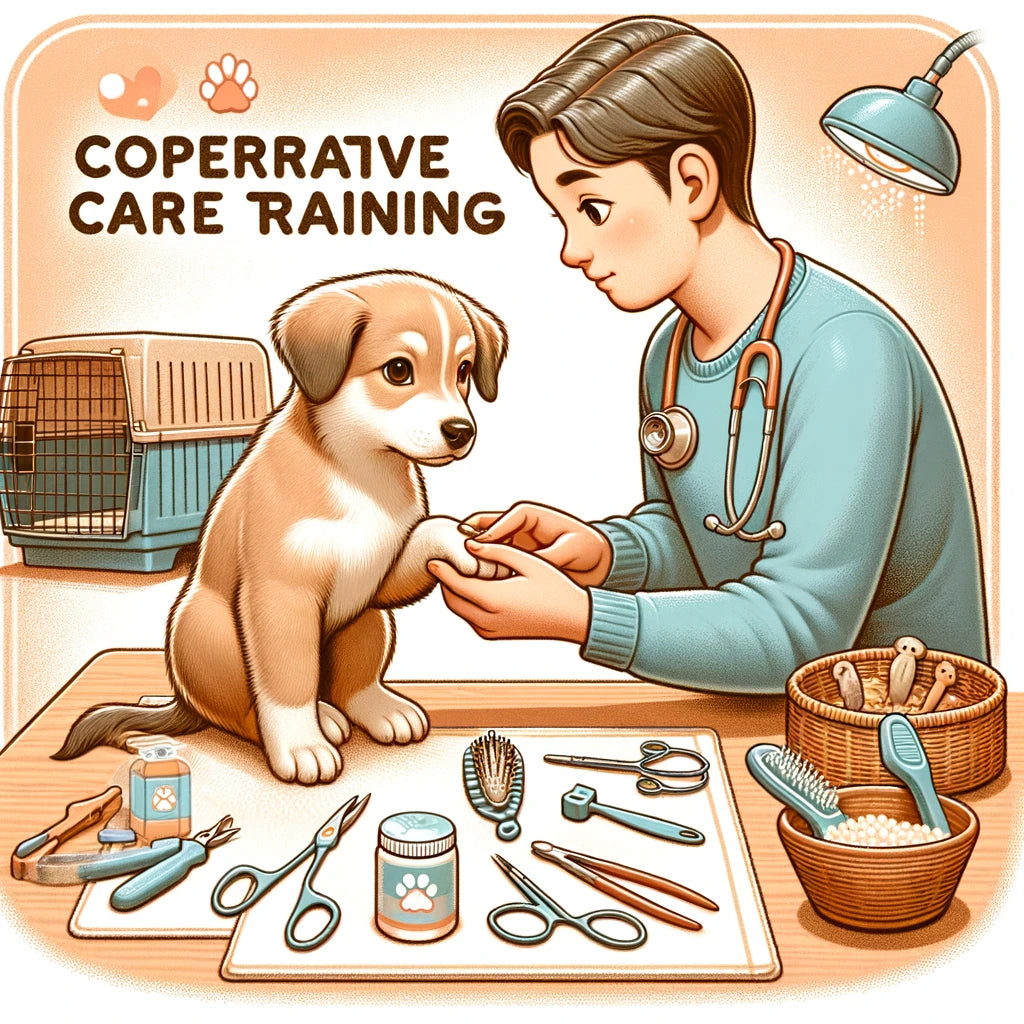
Training Your Puppy for Cooperative Care: Making Vet Visits Easier
Share
Welcoming a new puppy into your home is an exciting and heartwarming experience. However, it's also the start of a big responsibility. One of the most important aspects of puppy care that often gets overlooked is training them for cooperative care, especially to make vet visits less stressful for both you and your puppy. This blog post will discuss the importance of training your puppy in cooperative care and highlight three key tasks to teach them.
The Importance of Cooperative Care Training
Cooperative care involves training your dog to willingly participate in their own health care and grooming. It's crucial because it reduces stress and anxiety during vet visits, grooming sessions, and routine health checks. When a dog is comfortable with being handled, it not only makes these experiences more pleasant but also safer for both the dog and the veterinarian or groomer.
Task 1: Handling and Touching
Start by getting your puppy accustomed to being touched all over their body. Gently handle their paws, ears, mouth, and tail regularly. This desensitization makes them more comfortable during physical exams and procedures like nail trimming or ear cleaning. Use treats and positive reinforcement to associate these experiences with something enjoyable.
Task 2: Familiarization with Tools and Equipment
Introduce your puppy to various tools and equipment they will encounter at the vet, like stethoscopes, nail clippers, and brushes. Let them sniff and explore these items in a non-threatening environment. Pairing these introductions with treats and praise helps your puppy learn that these tools are not scary.
Task 3: Crate Training and Transport
Crate training is vital for safe transport to and from the vet. Make the crate a comfortable and positive space for your puppy. Start with short periods in the crate and gradually increase the duration. This training ensures that your puppy views the crate as a safe haven rather than a source of stress.
Practice and Patience
Remember, patience and consistent practice are key. Start these training sessions as early as possible and keep them short and enjoyable. Over time, your puppy will learn to trust you and understand that handling and grooming are normal parts of life.
In conclusion, training your puppy for cooperative care is an investment in their well-being and your peace of mind. It lays the foundation for a lifetime of stress-free vet visits and grooming sessions, ensuring your dog remains healthy and happy.